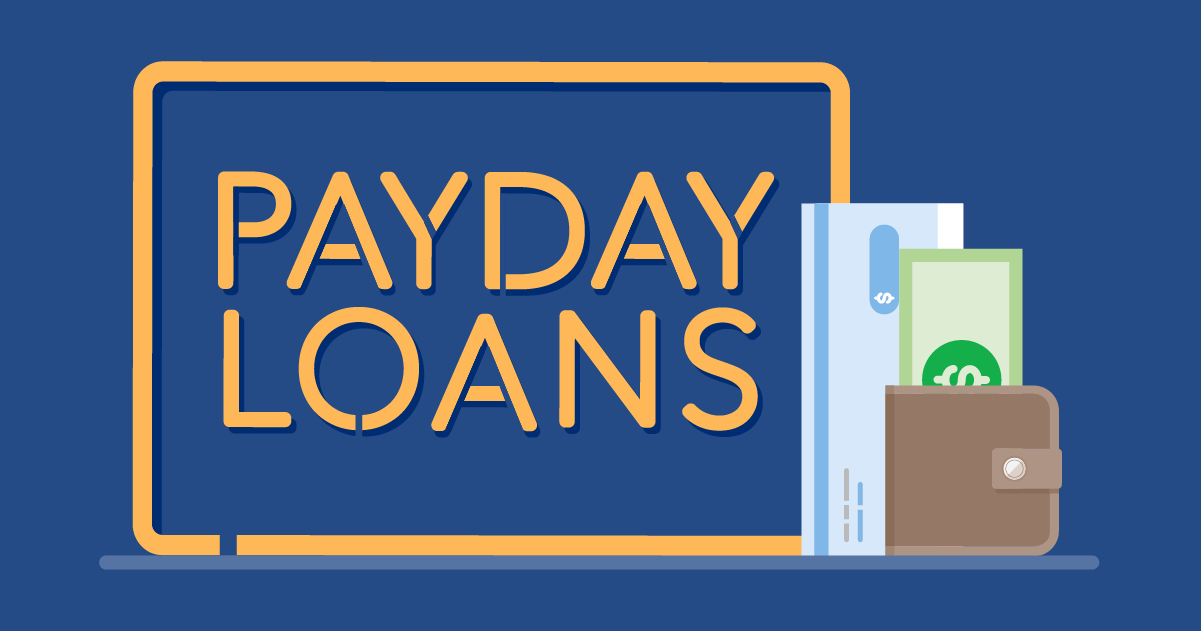Understanding why Installment Loans are widely-used among modern borrowers
Wiki Article
A Comprehensive Overview to Home Loans: Services and Options Explained
Charting the world of mortgage can be intricate. Various options exist, each with special features and ramifications for possible home owners. Comprehending the differences between conventional and government-backed car loans is crucial. In addition, the application process entails meticulous paperwork and pre-approval steps that many ignore. As customers start on their home-buying trip, understanding how to handle these responsibilities successfully might indicate the distinction in between monetary stability and difficulty. What methods can encourage them on this course?Understanding Home Loans: Kinds and Terms
Recognizing the numerous sorts of mortgage and their linked terms is necessary for prospective house owners, as it outfits them with the expertise needed to make informed monetary decisions. Home car loans can be extensively classified right into fixed-rate and adjustable-rate home loans. Fixed-rate mortgages keep a constant rates of interest over the life of the funding, offering stability in regular monthly payments. On the other hand, variable-rate mortgages feature rate of interest that might rise and fall after a preliminary set duration, potentially bring about reduced preliminary settlements yet increased future expenses.Additional terminology is important for quality. Principal describes the car loan quantity obtained, while rate of interest is the expense of loaning that quantity. The term of the financing shows its period, normally ranging from 15 to 30 years. Comprehending these basic principles enables possible customers to navigate the complex landscape of home funding, guaranteeing they select the appropriate funding choice that aligns with their financial circumstance and lasting objectives.
Traditional Finances vs. Government-Backed Loans
A substantial distinction in home funding exists in between conventional loans and government-backed loans, each dealing with various customer needs and conditions. Standard finances are not insured or ensured by the government and typically call for higher credit history and down settlements. They are often attracting consumers with steady economic backgrounds, as they may supply affordable rate of interest and terms.On the other hand, government-backed loans, such as FHA, VA, and USDA fundings, are made to help particular teams of borrowers, consisting of new buyers and experts. These fundings typically include lower down repayment demands and more adaptable debt requirements, making them easily accessible to a broader variety of people.
Ultimately, the choice in between government-backed and standard loans hinges on the debtor's financial circumstance, long-term objectives, and qualification, making it essential to meticulously assess both alternatives prior to making a choice.
The Role of Rates Of Interest in Home Financing
Rates of interest play an essential duty in home funding, influencing debtors' choices in between set and variable rate car loans. The option between these choices can greatly influence regular monthly repayments, affecting general price. Recognizing just how rate of interest operate is important for any person maneuvering with the home mortgage process.Taken Care Of vs. Variable Rates
Homebuyers encounter a vital decision when picking in between taken care of and variable prices, as this option greatly affects the price of funding in time. Fixed-rate home loans provide security, locking in an interest price for the life of the loan, which can be helpful in a rising interest rate setting. This predictability allows homeowners to budget better. Conversely, variable-rate home mortgages, or variable-rate mortgages (ARMs), normally start with reduced preliminary rates that can change based on market conditions. While this may lead to reduced preliminary payments, consumers encounter the danger of increased rates in the future. Eventually, the option in between fixed and variable rates relies on specific monetary scenarios, danger tolerance, and assumptions pertaining to future rate of interest trends.Influence on Regular Monthly Settlements
When assessing home financing choices, the impact of rates of interest on month-to-month payments is a key element to ponder. Rates of interest straight influence the total expense of loaning, influencing just how much a customer will pay each month. A reduced rate of interest lead to smaller sized month-to-month repayments, making homeownership much more inexpensive. Alternatively, greater rates can significantly raise regular monthly obligations, potentially stressing a house owner's spending plan. Furthermore, the finance term plays an essential role; longer terms may spread out repayments out but can bring about paying even more rate of interest over time - Cash Loans. Understanding how rates of interest engage with lending quantities and terms is necessary for borrowers to make educated economic choices and pick a mortgage that aligns with their lasting monetary objectivesHome Mortgage Brokers vs. Straight Lenders: Which Is Right for You?
When considering a home loan, possible borrowers should understand the distinctive functions and duties of mortgage brokers and straight loan providers. Each alternative provides its own benefits and drawbacks, which can significantly affect the general cost of financing. An enlightened choice requires careful analysis of these variables to determine the ideal suitable for private demands.Functions and Duties Defined
Maneuvering the complexities of home funding requires a clear understanding of the functions and obligations of home mortgage brokers and direct lenders. Payday Loans. Home mortgage brokers act as middlemans, connecting debtors with lenders. They evaluate a debtor's monetary situation, curate finance choices, and guide customers through the application process, often leveraging numerous loan provider relationships to secure positive terms. Alternatively, straight lending institutions, such as financial institutions and cooperative credit union, offer car loans straight to consumers. They take care of the whole financing procedure, from application to financing, with a concentrate on their own items. Each choice presents distinctive opportunities for acquiring financing, making it necessary for customers to assess their demands and choices when determining in between involving a home mortgage broker or functioning with a straight lending institutionCons and pros Comparison
Picking in between a mortgage broker and a straight lender can substantially impact the home funding experience, as each choice supplies special benefits and downsides. Home mortgage brokers work as middlemans, offering accessibility to several lending institutions and potentially far better prices, while simplifying the financing process. They might bill fees and count on commission frameworks that can affect their referrals. On the various other hand, straight lending institutions streamline the process by offering internal financings, which can bring about quicker authorizations and fewer difficulties. Alternatively, they might have a minimal choice of items and much less adaptability pertaining to pricing. Ultimately, the choice depends upon private choices, monetary situations, and the desired level of assistance throughout the home loan journey.Expense Effects Examined
While assessing the expense ramifications of mortgage brokers versus straight loan providers, prospective house owners should consider numerous aspects that can greatly impact their overall expenditures. Home loan brokers generally charge fees for their services, which can differ considerably, affecting the overall funding expense. However, they commonly have accessibility to a larger variety of financing items and competitive prices, potentially conserving borrowers money in the lengthy run. Conversely, straight loan providers might supply an extra uncomplicated process with potentially lower ahead of time costs, however their finance choices might be restricted. It is essential for home owners to compare passion prices, charges, and terms from both loan providers and brokers, guaranteeing they make an educated decision that straightens with their economic goals and needs.The Home Financing Application Refine: What to Anticipate
The home mortgage application procedure can commonly feel frightening for numerous candidates. It usually begins with gathering required paperwork, including proof of income, credit rating, and individual recognition. Lenders utilize this information to assess the candidate's financial security and determine car loan qualification.Next, applicants send a formal application, which might entail submitting on the internet types or supplying details in individual. Throughout this stage, lenders review various variables, such as debt-to-income proportion and credit rating rating, to select finance terms.
When pre-approved, the lender will carry out a detailed assessment of the residential or commercial property to determine its value aligns with the funding amount. This stage might also consist of additional background checks.
After last authorizations and problems are satisfied, the lending is refined, bring about the closing phase. Recognizing each action empowers candidates, making the trip smoother and more manageable as they move toward homeownership.
Tips for Managing Your Home Mortgage Properly
Successfully maneuvering the mortgage application procedure is simply the beginning of an accountable economic journey. Handling a home financing calls for attention to numerous crucial practices. First, customers must develop a clear budget plan that suits monthly home loan payments, real estate tax, and insurance policy. Frequently reviewing this spending plan assists avoid overspending and guarantees timely repayments.
In addition, making added repayments when possible can considerably reduce the loan principal and total passion paid with time. Debtors ought to additionally keep open lines of interaction with their loan provider, particularly in times of financial problem - Cash Advance. This can bring about possible services such as finance modifications or re-financing alternatives
Ultimately, it is a good idea to keep track of credit score ratings consistently. A great credit report can Fast Cash supply chances for far better funding terms in the future. By following these pointers, property owners can navigate their car loan responsibilities properly, ensuring long-lasting economic health and stability.
Regularly Asked Inquiries
What Are Closing Prices and Exactly How Are They Determined?
Closing prices incorporate charges connected with completing a mortgage, including assessment, title insurance policy, and financing origination fees. These expenses typically vary from 2% to 5% of the financing amount, differing based on place and lender.
Can I Receive a Mortgage With Bad Credit?
Yes, individuals with negative credit history can get approved for a home loan, though alternatives may be limited. Lenders frequently call for higher deposits or rates of interest, and checking out government-backed car loans may improve chances of approval.
What Is Home mortgage Insurance and When Is It Required?
Mortgage insurance coverage safeguards lenders against default and is commonly needed when a customer makes a deposit of much less than 20%. It guarantees that loan providers recover losses if the borrower stops working to pay off the car loan.Exactly How Does Refinancing Job and When Should I Consider It?
Refinancing involves replacing a current home loan with a new one, generally to secure a reduced rate of interest or change finance terms. Homeowners should consider refinancing when rate of interest drop significantly or their economic scenario boosts.What Occurs if I Miss a Home Loan Settlement?
If a home mortgage settlement is missed out on, the loan provider commonly evaluates late fees, reports the delinquency to credit history bureaus, and may initiate foreclosure procedures if payments continue to be neglected, at some point endangering the home owner's home.Fixed-rate home mortgages keep a regular interest rate over the life of the car loan, supplying security in regular monthly repayments. A substantial difference in home financing exists between standard lendings and government-backed fundings, each providing to different borrower demands and conditions. In comparison, government-backed car loans, such as FHA, VA, and USDA fundings, are designed to assist specific teams of debtors, including first-time homebuyers and experts. Passion rates play an essential function in home funding, affecting borrowers' choices between fixed and variable price car loans. Fixed-rate home mortgages supply stability, securing in a rate of interest price for the life of the car loan, which can be beneficial in an increasing passion price atmosphere.
Report this wiki page